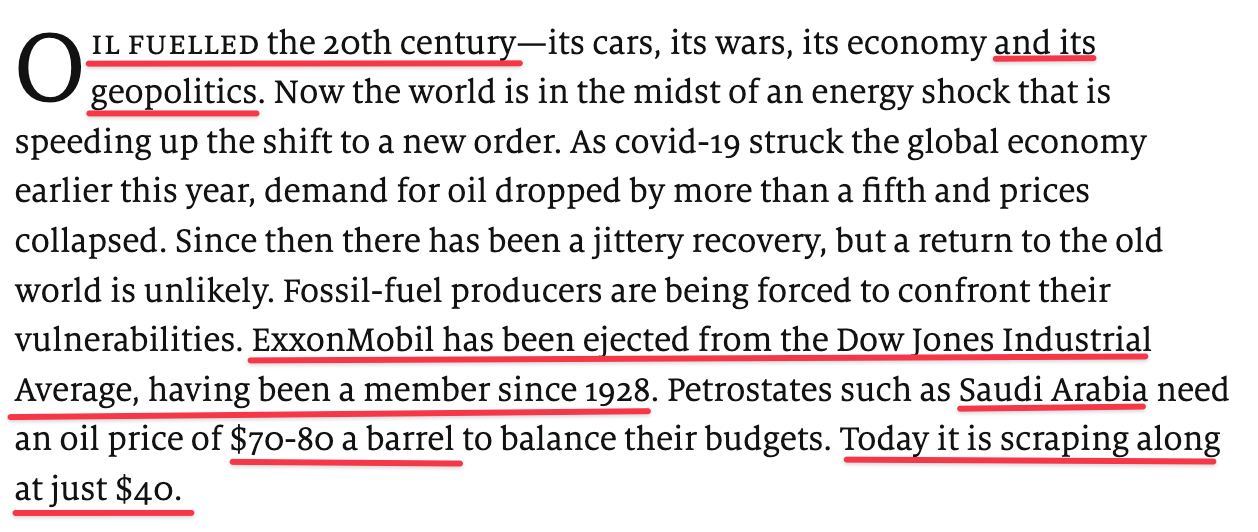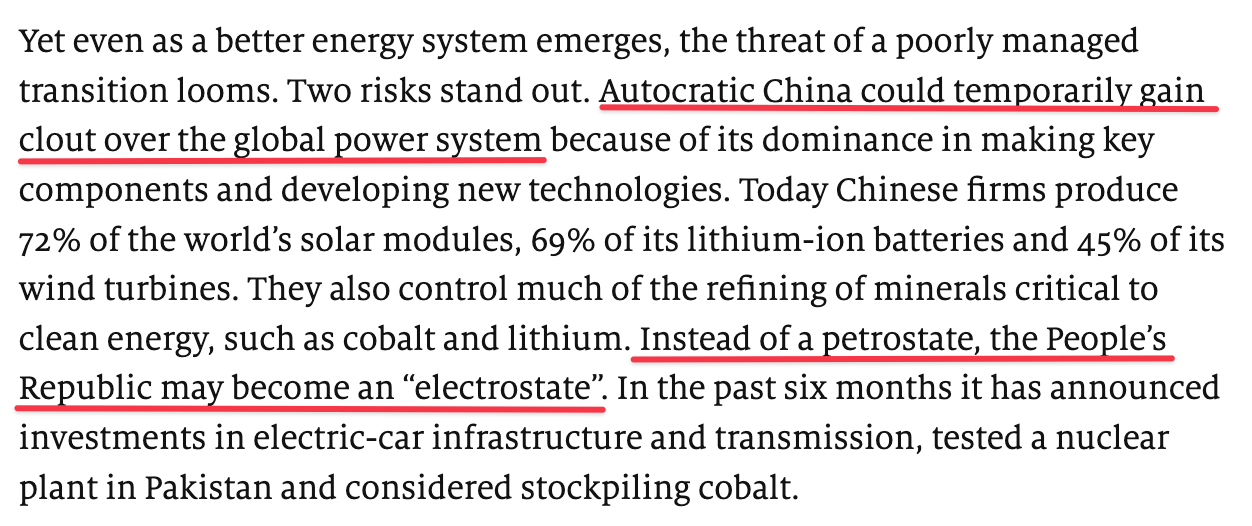T2B40: Cliden 13
Geopower
Today’s update is the 40th update in the T2B series 🕺🏾and the 13th Cliden update - on a Friday no less 🧟.
I have kind of arrived at the place I wanted to when I started this series, landing on a hypothesis that feels philosophical, true to the present moment and capable of engaging with the challenges that Biden faces. In one word:
Geopower
Biopower was used by Foucault to describe the regulation of life by the mechanisms of power: health, education, reproduction, imprisonment etc, and the disciplining of the self as a response to that exercise of power. But that formulation leaves out several important developments since Foucault’s time:
The increasing urgency to regulate the media in which life is embedded: both natural media such as the carbon in the atmosphere and the artificial (primarily digital) media which flows in and out of our minds.
It’s no longer the self being disciplined but sub-individual systems - specific emotional systems, specific parts of our guts and so on as well as supra-individual systems - communities, demographics etc.
If the self was the locus of individual control, the population used to be the locus of collective control. We now have many scales and sizes of control, which also marks the shift from normally distributed populations to distributions with fat tails.
As the virus told us this year and carbon will tell us every year from now on, the order of power has expanded to include the non-human world - both as agents and as media. Actually, not just their agency but the enormous powers of self-organization in the nonhuman world.
The virus also sped up the ongoing push towards synchronous global existence. Yes, we were all watching the same Hollywood movies and eating McDonald’s burgers, but we are now coordinating our acts on a minute by minute basis across the world. The globalization of everyday life in real-time.
As Branko says:
There’s no firm signpost, but it’s only fitting we mark the global pandemic as the transition from biopower to geopower.
Geopowered GND
I am going to share some highlights from the Economist’s coverage of the climate crisis and the GND to close out the Cliden coverage; I hope these snippets give you a sense for the geopowered nature of the Green New Deal.
As a crude first approximation, the GND has three components:
Infrastructure for the transition to renewable energy.
Jobs for those who make that transition happen.
Just distribution of the rewards from that transition and protection against the inevitable pains.
The Economist cares about the first way more than the other two. In its framing, the energy transition predicts loserdom for politically powerful nations and companies (KSA and Exxon). I won’t be surprised if KSA decides to have a ‘going out of business’ fire sale and pumps like crazy until there’s an international ban on oil sales. Cue music about frying pans marching into the fire:
The new cold war will be fought for green gold. But China will have to engaged since its green manufacturing will be needed for the urgent tasks ahead:
That urgency is going to cause a lot of turmoil, not only from the rising seas and burning forests, but also from the militarization and competition over a shrinking pie (as the pessimists think) or an expanding pie (as the geoneoliberals wish):
Messy Reality
The Economist’s use of the term ‘messy’ sparked a thought in my head:
The Economist, like the NYT and other establishment news sources deceive us by staying away from emotion, making a case for neoliberal policies with the cold voice of reason. The paper of record’s biases are hard to detect - they are mostly in the careful selection of facts, of hiding what’s being hidden. In contrast, Trump wears his biases on his sleeve and is seen as a straight shooter - even though he only acts in his own interest and only has instrumental relationships.
In a messy world, people turn away from reason when they suspect that smart, powerful people have fixed the system while pretending to be fair. Reason loses its purchase on the truth, and emotion bears the mark of the real in its stead.
Foucault and the postmodernists were infamous (and perhaps unfairly characterized) for saying that knowledge goes hand in hand with power, each determining the other. Geopower reaches beyond knowledge into the world itself.
It’s reality created by power, not just knowledge.
In information processing terms, instruments such as the census gathered ‘data’ that were ‘processed’ into forms of knowledge that in turn were fed into mechanisms of state and corporate control. There were many input/output steps between data and action.
Today’s links are more direct; the feedback loop between data gathering and control is much faster. Tomorrow’s control systems might enact that direct loop at planetary scale - drawing down carbon in one sector while adding a dollop in another. Geoengineering will be the ultimate form of reality control. I am reminded of this prescient quote from one of Dubya’s underlings:
Geopower creates reality. It’s just another way of describing the Borg empire.










